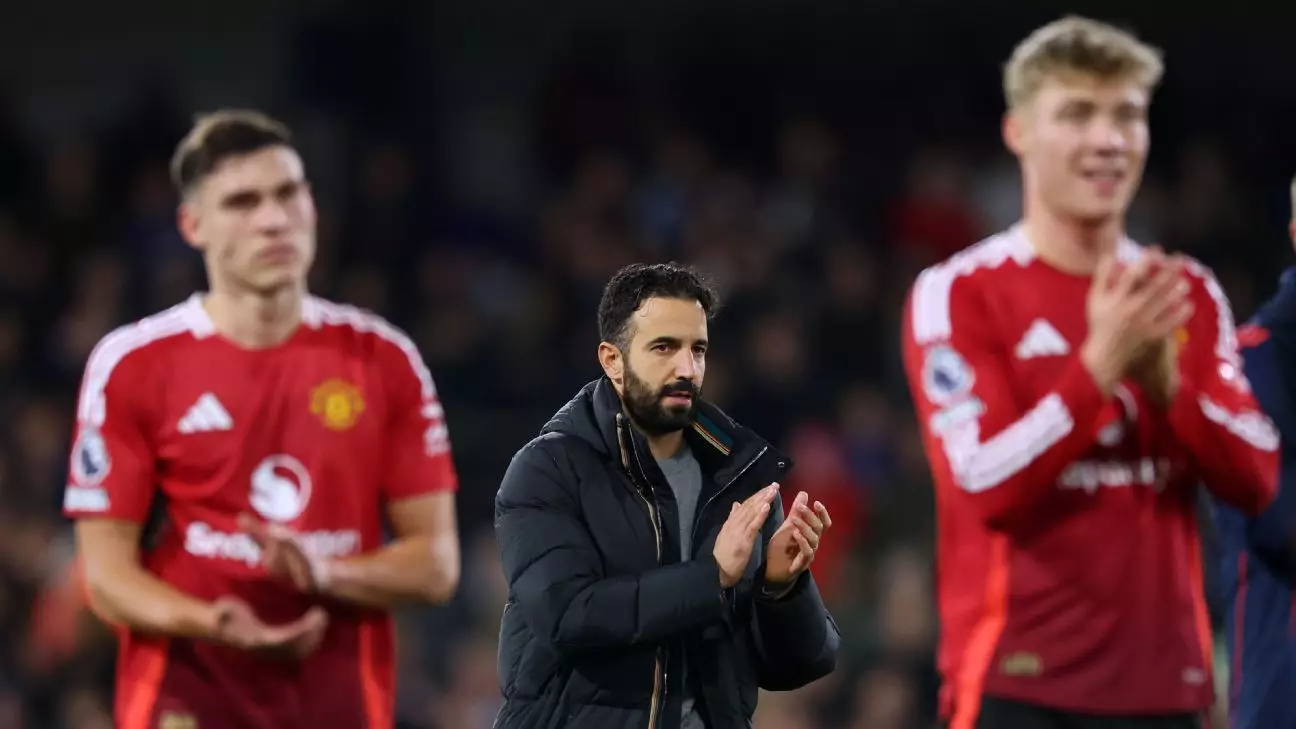Ruben Amorim, the newly appointed head coach of Manchester United, has recently found himself in the spotlight, not only for his tactical acumen but also for the love and admiration expressed by the club’s fervent fanbase. As chants of “Ruben Amorim” echo through Old Trafford, Amorim’s response reflects a nuanced understanding of his role as a coach, juxtaposed against the enthusiastic support from fans. His discomfort with this popular chant reveals a deeper philosophy about leadership, priorities, and the collective responsibility of a football club’s success.
The phenomenon of fans singing a coach’s name is not uncommon in football, often symbolizing a connection between supporters and management. However, Amorim has expressed some unease with this adoration, highlighting a critical perspective that emphasizes the importance of player-centric support. “I don’t like my chant; I feel a bit embarrassed,” Amorim noted, emphasizing that the focus should ideally be on the players who put their effort on the pitch. This sentiment raises questions about the dynamics of support in sports culture and the potential unintended consequences of shifting the spotlight away from the squad.
Amorim’s preference for fostering a supportive atmosphere for his players suggests a desire to create a more collaborative team environment, absent of undue individual focus. As he keenly articulated, the players are the ones battling on the field, facing the rigors of competition, and it is crucial for fans to rally behind their efforts rather than inadvertently placing the coach in the limelight.
In recognizing the connection between himself and the supporters, Amorim simultaneously acknowledges an intrinsic responsibility that comes with the role. His understanding that a coach is just one cog in the larger machinery of the club illustrates a commendable self-awareness. “I am really honored by that connection with the supporters, but we know we need results to maintain that,” he remarked, indicating a clear grasp of the performance-driven nature of football. This emphasizes the challenging balance coaches must navigate between embracing the love from fans and maintaining an unwavering focus on player development and team performance.
The pressure of sustaining results is particularly palpable in the context of Manchester United, a club long steeped in a pursuit of success. The expectations set not just by history, but by the passionate fanbase dictate that a coach must be not only a strategist and motivator, but also a stabilizing force in high-stress environments.
Upcoming Challenges and Player Availability
Looking ahead to a critical match against Arsenal, Amorim’s focus on the upcoming challenges underscores the importance of preparation and player readiness. He expressed optimism regarding Bruno Fernandes’ availability despite concerns about his ankle injury, a crucial position that could impact team performance. Further enhancing the squad’s options is Leny Yoro, a promising 19-year-old defender returning from injury.
Amorim’s caution in handling Yoro’s reintegration into the team speaks volumes about his mentorship approach. He recognizes the need to nurture special talents carefully, especially when their fitness and familiarity with the squad are in flux. By prioritizing the well-being and gradual acclimatization of his players, Amorim illustrates what it means to be a thoughtful coach in a pressured environment.
Ruben Amorim’s articulate remarks regarding fan engagement showcase his commitment not just to personal accolades, but to the well-being of the entire Manchester United organization. His stance on the chants directed at him turns a spotlight on the importance of collective effort within sports. As he navigates the complexities of his role, the forthcoming encounters with premier clubs like Arsenal will be telling of his growth as a manager and his ability to unite ethics of support with the rigorous demands of competitive football. Ultimately, Amorim’s vision is clear: to enhance performance and cultivate a cohesive team environment, ensuring that both players and fans thrive together, not individually.

Leave a Reply